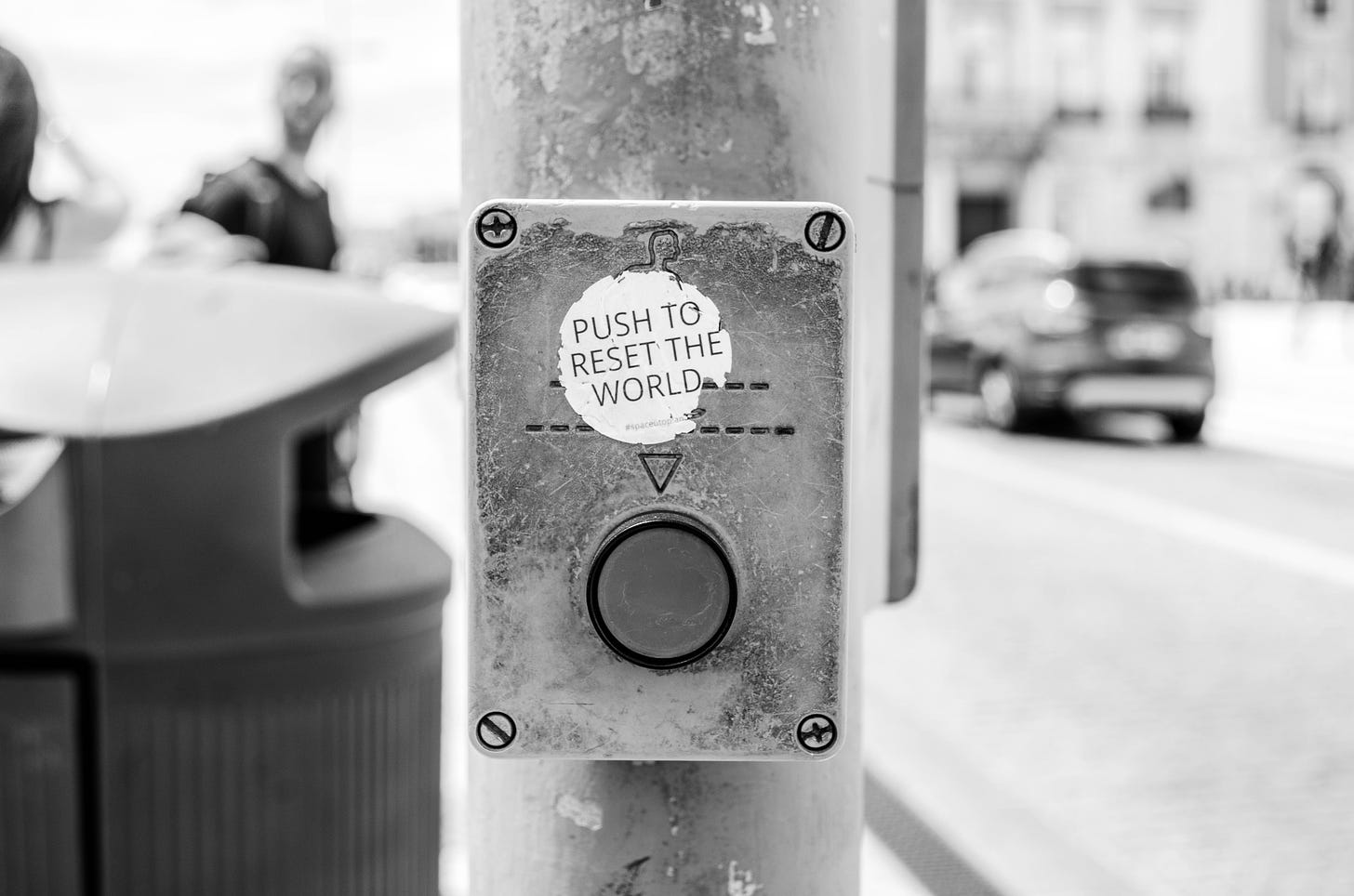The Lesson of Lush
One brand's stand against social media toxicity is an invitation for all of us

Maybe you’ve seen the news by now that Lush, the global cosmetics brand, just went and pulled the plug on their social media accounts.
Facebook. Instagram. Snapchat. TikTok. Gone.
Which is a pretty surprising move, considering that the target market for the all-natural, responsibly-sourced, environmentally-focused Lush brand is primarily Gen Z and Millennial women, the exact audience that uses those platforms to engage—heavily—with the kind of lifestyle content Lush posts so well.
Er, posted so well. Until last week.
It’s not an insubstantial move. According to their own estimates, Lush expects to lose upwards of $13 million in revenue, specifically because of the void they’ve decided to leave in the social space. They’ve effectively cut the power to their marketing machine, leaving only a few flickering emergency lights near the exit (they’re still on Twitter and YouTube, so their social reach isn’t zero…but it’s over 10 million followers closer to zero than it was last Thursday).
For a brand, shuttering your social is like climbing into a time machine and setting the dial for 1993, but the time machine only moves you through time, and no one else, and now you have to coexist with the rest of the world in a weird temporal anomaly where everyone else is consuming digital content while you’re frantically putting the finishing touches on the one really expensive paper catalog you’re going to print and mail out for a scattershot mix of maybe-target customers to mostly ignore next quarter.
It is an absolutely wild move.
And of course, it’s the right one to make.
According to CEO Mark Constantine, Lush had “no choice” but to leave the platforms, given what we’ve learned about the mental health issues they’re causing and the brazenness with which the platform companies themselves disregard the damage they do. Constantine didn’t mince words when he spoke about the imperative of the decision: “We’re talking about suicide here, not spots or whether someone should dye their hair blonde.”
Another way of looking at it could be that by remaining on the harmful platforms, Lush would have been making a pretty ghastly value decision—$13.3 million in exchange for the mental health of children.
I wonder how many other brands are doing that same math.
And that’s the truly upsetting part. It’s not that Lush realized it was contributing to severely damaging behavior and dropped their platforms in disgust; it’s that so, so, so many other companies are confronted with the same truth and decide to keep on with business as usual.
As long as there’s a value incentive in posting content on social platforms, brands will keep doing it, even though we know that social media is making us angrier and sadder. Part of the responsibility of reframing our relationship with social media means altering the way we use it, as well as the frequency with which we use it. If we change our behavior to make ourselves happier and healthier—if we use social less, if we take longer breaks, if we stop engaging with negativity, if we turn our value elsewhere—the incentives for brands will change, too. By using social media less, and engaging in better ways, you’re not only helping yourself move toward personal wellness; you’re also moving the needle on a macro-marketing level. Brands won’t spend resources on channels that potential customers aren’t watching, and if enough of us change our behavior, eventually that small needle tick will become a large-scale shift.
If we pull focus from social, brands will pull focus from social. And if brands pull focus from social, the value incentives for Meta, for TikTok, for Twitter—for all of them—will change. And maybe, just maybe, if we all make the same decision that Lush made, the platforms will have no choice but to build social networks that work for people, not because of people.
Lush’s move was brave, but it was also imperative. If we want to change the social world for the better, brands and users are going to have to work together to make an overt agreement that yes, we value mental health; yes, we value our community; yes, we value our children; and yes, we value meaningful connection that makes the world better, not worse.
If Lush can do it with $13 million at stake, we can probably do it too.



